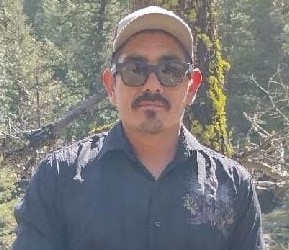On August 9th Sarah Mandoza of Boise Idaho called and ask for assistance in locating her fiancé Jose Nunez who went missing on July 30th. Jose was out boating on Lucky Peak Lake with friends and jumped into the lake to swim. He soon disappeared.
Sarah indicated that another sonar team had searched for four days with no luck and would not return.
I agreed to travel out to see what we could do. I contacted my cousin Dave S. who had recently retired, and we left on August 15th for our 27-hour drive. We met with the family and a witness at the boat landing. We took the witness out in our boat so he could show us firsthand where he witnessed this accident. We began our search on Wednesday morning for Jose. Lucky Peak Lake is a large reservoir and about 180’ deep with rocks, trees, and steep drop-offs in the search area. The temperatures were around one hundred degrees with the hottest registering 110 degrees on one of our search days.
On day 6 of our search, August 22, we located Jose along side and at the bottom of one of the steep drop offs in 145’. We recovered Jose using our Outland Remoted Operated Vehicle with the assistance of Ada County Sheriff’s Department. This area proved to be exceedingly difficult to cover because of the changing depths and all the obstacles we encountered. Sarah, as well as family and friends were on the shore each day while we were out on the lake waiting for the news of Jose being able to come home.
I would like to give special thanks to Dave S for taking this much time away to help. I could no way have made all this happen without his help. Our heartfelt condolences to the family and friends of Jose.

